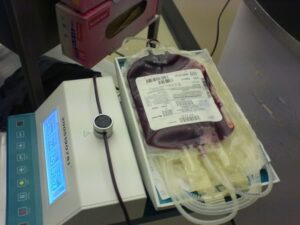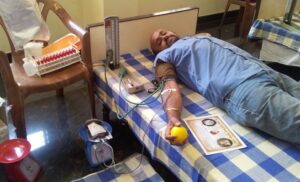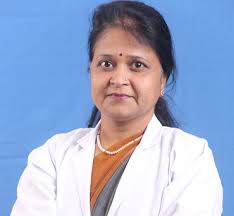Voluntary blood donation in India can save many lives.To promote voluntary blood donation among the masses, every year on 14th June is observed as World Blood Donor Day.


According to WHO, India was in need of 6 crore units of blood in 2017, but only half of the units were available. During critical conditions, most of the blood banks in India face the similar challenge of making sufficient blood available. It is also estimated that if only 1% of the population (in addition to the already donating) voluntarily donates blood, the demand supply deficit can be curbed down completely.
Who can donate blood?
To be eligible for donating blood, an individual must be healthy and should not be suffering from any acute chronic disease or blood related ailments. One can ensure their eligibility to donate blood through regular screening of their blood. For a healthy person doctors may recommend to undergo routine blood tests at least once a year. Regular health screening helps an individual to monitor their wellness and bodily changes over a period of time, and enables timely treatment to prevent chronic conditions.


Need of Blood Donation in India
In India, blood donation is required in every two seconds. Around 40,000 blood donors are required every day. In the year 2016, ministry of health family welfare reported there was blood donation of 10.9 million units against the demand the requirements of 12 million units. The most demanding blood group by the hospitals is Group B. A single accidental victim requires more than 50 units of blood. More than one million patients are diagnosed with cancer every year and require blood daily or during their chemotherapy session.
Do not hesitate – Donate blood, it’s safe
Blood donation is a safe process where just a sterile needle is used for every single donor and is discarded after the use. Anyone can donate blood in four simple steps – registration, Medical History, Blood Donation and refreshments. No chances of infection during and after blood Donation. On an average around 350 to 450 mL of blood is withdrawn, which usually takes 24-48 hours to replace with the new blood volume. The Red Blood Cells (RBC) are replaced automatically within 4 to 6 weeks.
It is also a fact that women can donate blood once in every four months and men in every three months. The maximum age limit for blood donation is 65 years and regular donors older than 60 years may be accepted under the guidance of a blood bank doctor.
Don’t hesitate in donating blood. Your donation helps in saving life of people. If you start donating blood at the age of 18 and donated blood in every 90 days until you reached the age of 60, you would have donated 192 units of blood, potentially helping save more than 400 lives.
Who should not donate blood?


Precautions that should be taken before donating blood
The day before your blood donation make sure you eat well, take balanced diet on the same day. Drink extra water and fluids; avoid caffeinated drinks like tea and coffee.


Dr Reena Bansal
HOD –Blood Bank
Saroj Super Speciality Hospital, New Delhi











